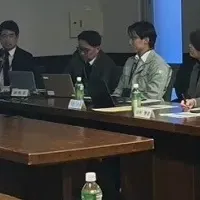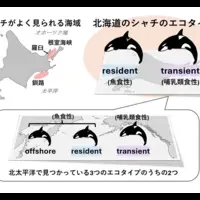
Delta Electronics Takes Bold Steps at COP29 for a Sustainable Future
Delta Electronics Takes Bold Steps at COP29 for a Sustainable Future
Delta Electronics, a powerhouse in energy management and thermal solutions, has marked its 17th consecutive appearance at the 29th United Nations Climate Change Conference (UNFCCC COP29) held in Baku, Azerbaijan. This year’s conference was particularly significant, as Delta took a prominent role in advocating for sustainable practices and innovations in building efficiency and energy consumption in AI data centers.
On November 21, Delta co-hosted a side event alongside esteemed organizations such as the American Institute of Architects (AIA), the Royal Institute of British Architects (RIBA), and the International Code Council (ICC). The main focus of the discussions revolved around leveraging cutting-edge technologies to develop energy-efficient building solutions, particularly in the context of our growing reliance on AI. Delta showcased a wide range of its products, emphasizing its advanced liquid cooling technology that aids in achieving greener outcomes for data centers. Delta's innovations, notably achieving a Power Usage Effectiveness (PUE) of 1.1, have positioned it as a leader in facilitating the transition towards more eco-friendly infrastructure.
Shan-Shan Guo, Chief Brand Officer of Delta, expressed pride in the company’s ongoing commitment to sustainability. "For the 17th time, Delta continues its presence at the UNFCCC, and for the 13th time, it hosts or participates in side events in the Blue Zone to share its climate action experiences and technological solutions. This year, our side event featured Delta's ESG representatives from across the Americas, Europe, and Southeast Asia, providing a truly global perspective on our efforts."
Delta’s presence at COP29 wasn't just about showcasing technological prowess. The company further emphasized its ownership of 35 green buildings globally and affirmed its role in resilient reconstruction projects following climate disasters. Through an array of smart energy-saving building technologies, Delta is pioneering redesigns that withstand the increasing impacts of climate shifts. Guo remarked, "Our aim is to inspire more partners to collaborate towards a net-zero future."
Amid rising energy demands from the AI sector, according to the International Energy Agency's (IEA) World Energy Outlook 2024 report, data centers consumed a staggering 340 terawatt-hours (TWh) of energy in 2023. The IEA predicts that this figure could double by 2030, making enhancements in energy performance more pressing than ever. At the side event, Delta’s ESG Manager for the Americas, Alex Liu, highlighted how Delta’s comprehensive power and thermal management solutions for AI data centers can significantly cut down energy usage.
These advancements were underscored by Delta’s impressive accomplishments in sustainable architecture. The company proudly showcased its Americas headquarters, which is certified under the LEED Zero Energy standard, alongside success stories from projects like the Namasia Mincyuan Elementary School in Kaohsiung. This institution now holds the title of Asia’s first LEED Zero Energy-certified campus, a testament to Delta's commitment to fostering environments designed with sustainability in mind.
Discussion topics at the side event also revolved around the collaborative efforts necessary for achieving net-zero emissions in the construction sector. In collaboration with AIA and RIBA, as well as ICC’s “Building Breakthrough” initiative, Delta engaged attendees on the necessity for technology, policy, standards, and innovative partnerships to further resilient architecture. AIA director Illya Azaroff highlighted the cost-efficiency of investing in resilient architecture, stating that each dollar spent can save six dollars in recovery from disasters.
Mina Hasman, co-chair of the RIBA's Climate Action Expert Advisory Group, added that government actions are crucial for market transformation. She advocated for governments to set ambitious goals that encourage the private sector to share knowledge and push for policies that facilitate net-zero practices.
Delta’s participation extends beyond COP29; as an official observer of the UNFCCC since 2007, the Delta Electronics Foundation actively contributes to global dialogues on climate action, consistently bringing insights back to Taiwan. In addition, this year Delta became an official observer for the United Nations Convention on Biological Diversity, marking its commitment to addressing not only climate change but also the vital importance of biodiversity.
Founded in 1971 and publicly traded on the Taiwan Stock Exchange (stock code: 2308), Delta Electronics is recognized globally for its pioneering contributions in power supplies and thermal management products. The company's extensive portfolio of IoT-based smart energy-saving systems combines industrial automation and sustainable practices to further its mission: to provide innovative, clean, and energy-efficient solutions for a better tomorrow. With operations in nearly 200 locations across five continents, Delta leverages its expertise to tackle key environmental issues, earning accolades for its contributions to sustainability and environmental governance.
As we look ahead, Delta's strategies and initiatives at COP29 will undoubtedly play a pivotal role in shaping a sustainable future, not just within the industry but across the globe. For more information on Delta’s initiatives and technology offerings, visit Delta Electronics.
Topics Environment)










【About Using Articles】
You can freely use the title and article content by linking to the page where the article is posted.
※ Images cannot be used.
【About Links】
Links are free to use.